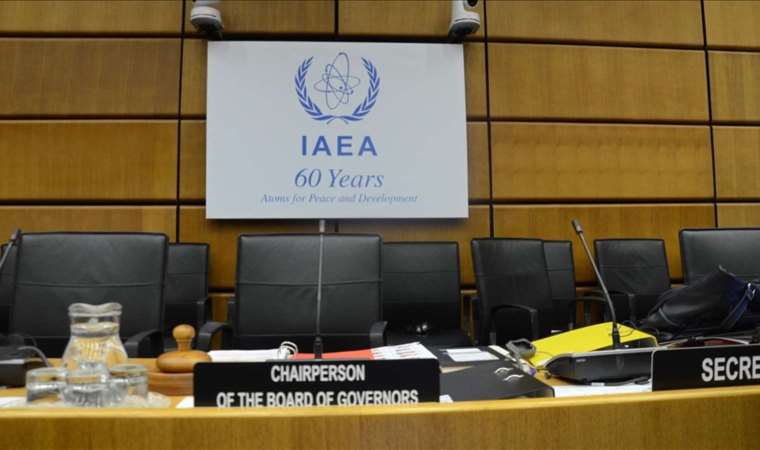The global nuclear watchdog on Tuesday said Japan’s release of nuclear waste from the crippled Fukushima nuclear plant into the sea will have a "negligible radiological impact on people and the environment."
In a report submitted to Japanese Prime Minister Fumio Kishida in Tokyo, the International Atomic Energy Agency (IAEA) chief Rafael Grossi said: “Based on its comprehensive assessment, the IAEA has concluded that the approach and activities to the discharge of ... treated water taken by Japan are consistent with relevant international safety standards.”
“The discharges of the treated water would have a negligible radiological impact on people and the environment,” said the IAEA in a statement.
Grossi dubbed the report as “scientific, impartial” as the IAEA began working on the issue two years back, Tokyo-based Kyodo News reported.
However, he said the IAEA “neither” recommends "nor" endorses the national decision of Japan to release the treated water into the sea.
“The IAEA will continue our impartial, independent and objective safety review during and after the discharge phase,” said Grossi, adding the nuclear watchdog will have a continuous on-site presence.
The IAEA chief reached Tokyo today amid criticism against Japan's plans to release nuclear waste into the sea.
Grossi also met Japan's Foreign Minister Hayashi Yoshimasa for a briefing on the issue.
The duo discussed the plan about releasing treated and diluted water into Sea from the Fukushima nuclear plant site.
Grossi's Japan trip comes a day after China urged the IAEA to take a “responsible” stand on Japan's plan to discharge nuclear-contaminated water into the sea.
"If the project follows safety standards, it won't harm the environment,” said Grossi, according to Tokyo-based NHK News.
Wu Jianghao, China’s top diplomat in Japan, told a news conference in Tokyo that Beijing was “opposed to the release of the Fukushima water into the sea.”
“Stop Japan from releasing the water into the sea, and consider a scientific, safe, transparent and convincing treatment method that other countries can accept,” Wu said, according to Tokyo-based NHK News.
Prior to his meeting with Grossi, Yoshimasa said the government would offer comprehensive explanations supported by scientific evidence, ensuring transparency, and striving to enhance the international community's understanding.
Tokyo earlier said the treated nuclear waste will be released into the sea this summer as planned.
Japan's water discharge plan, announced in April 2021, faced significant criticism from China, South Korea, North Korea, Taiwan, and international organizations, including the UN.
The US supported the proposal, following years of discussions on dealing with over 1 million tons of water stored at the Fukushima nuclear complex since the 2011 disaster.
Despite the pressure, Japan last month initiated the injection of seawater into a drainage tunnel at the damaged Fukushima Daiichi Nuclear Power Plant, marking the initial stage of releasing treated radioactive wastewater into the ocean.
Meanwhile, Seoul announced that Grossi will visit South Korea for a three-day trip, including a meeting with the head of the country's nuclear safety watchdog.















